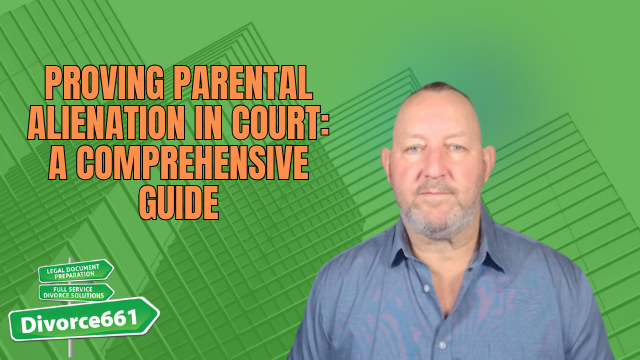How to Prove Parental Alienation in Court
Parental alienation is a serious issue that can disrupt the relationship between a parent and child. If you suspect your ex is damaging your relationship with your child, it’s crucial to understand the steps you can take to prove this in court. Let’s dive into what parental alienation is and how you can build a strong case to protect your custody rights.
Understanding Parental Alienation
Parental alienation occurs when one parent tries to manipulate the child into rejecting or fearing the other parent. This can happen through negative comments, withholding visitation, or outright lies. Courts take these claims seriously, but proving alienation requires solid evidence.
What Constitutes Parental Alienation?
Common behaviors that may indicate parental alienation include:
- Consistently criticizing the other parent in front of the child.
- Sharing inappropriate information about the other parent with the child.
- Encouraging the child to ignore or refuse contact with the other parent.
- Manipulating the child’s feelings through guilt or fear.
These behaviors can lead to significant emotional distress for the child, affecting their relationship with both parents.
Building Your Case: Documentation is Key
If you believe you are a victim of parental alienation, the first step is to document everything. This includes:
- Missed Visitations: Keep a record of any missed or interfered visitations. Note dates and reasons provided by the other parent.
- Text Messages and Emails: Save any communications that demonstrate negative comments or interference with your relationship.
- Conversations: Write down specific conversations with your child where they express negative feelings about you, especially if they seem out of character.
Witness Statements
Gathering witness statements is crucial. Teachers, counselors, or family members who have observed changes in your child’s behavior can provide valuable testimony. Their observations can help establish a pattern of alienation.
Requesting a Custody Evaluation
Consider requesting a custody evaluation. A court-appointed evaluator can assess the situation and provide a professional opinion regarding parental alienation. This can strengthen your case significantly.
Real Client Example
One of our clients experienced severe alienation when their child suddenly refused to visit, repeating negative statements learned from the other parent. By collecting text messages, emails, and witness statements, they demonstrated a clear pattern of manipulation. The court ultimately modified custody in their favor!
Taking Legal Action
Once you have gathered sufficient evidence, you can take legal action. This may involve filing a motion to modify the existing custody order. You could request that the court appoint a child custody expert to review the case.
Working with Legal Professionals
At Divorce661, we specialize in helping parents prove parental alienation and protect their rights. If you believe your ex is turning your child against you, don’t hesitate to seek legal assistance.
Why Choose Divorce661?
- We help parents prove parental alienation and protect their rights.
- Flat-fee divorce services – no expensive lawyers.
- 100% remote services, allowing you to handle everything from home.
- We prioritize the best legal outcomes for you and your child.
Conclusion
Proving parental alienation in court can be challenging, but with the right documentation and support, it is possible. If you suspect that your ex is alienating your child, take action quickly. Gather evidence, seek witness statements, and consider a custody evaluation to strengthen your case. Protecting your relationship with your child is paramount, and we’re here to help you navigate this difficult situation.
Get Started Today
Think your ex is turning your child against you? Visit Divorce661.com for a FREE consultation today!


